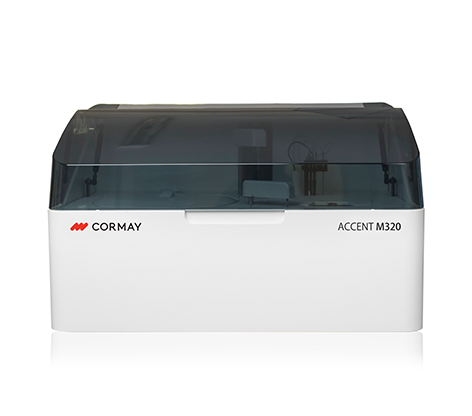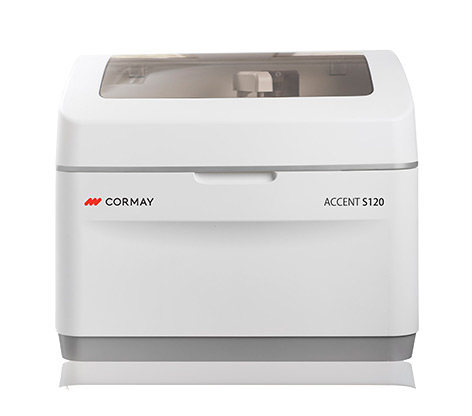UREA
Urea is a product of amino acids catabolism. It is produced in liver and excreted in urine. Determination of urea level in serum, plasma and urine is mainly used as an aid in diagnosis of renal and liver diseases. Measurement of urea concentration is used to monitor patients on parenteral nutrition and differentiate prerenal and non-renal azotaemia. Urea concentration measuring is used to monitor the severity of uremic toxaemia in patients with terminal renal failure and in dialyzed patients to assess the patient's metabolic status and intensity of protein catabolism. Increased urea concentration (uremia) is observed due to dehydration, renal failure, high-protein diet, increased protein catabolism caused by tissue injury or massive bleeding into the alimentary tract. Reduced urea level could be caused by overhydration, low-protein diet or starvation and severe liver disease.
Specification
|
Method |
enzymatic (urease/GLDH) |
|
Specimen |
serum, plasma, urine |
|
On board stability |
up to 12 weeks |
|
Calibration stability |
up to 12 weeks |
|
Measuring range |
2,2-450 mg/dl |
|
Regulatory status |
CE IVD |
Reagent lines
Multipurpose Line
Liquick Cor-UREA 30
Liquick Cor-UREA 60
Liquick Cor-UREA 120ACCENT-200
ACCENT-300
A-400
A-800
Prestige 24i
PRESTIGE 24i LQ UREA (24 positions reagent tray)
PRESTIGE 24i LQ UREA (36 positions reagent tray)B50
OS
HC
Panels: routine screening, nutritional, renal, COVID-19
Available reagents
A-800 UREA
ACCENT-200 UREA
ACCENT-300 UREA
B50-UREA
HC-UREA
LIQUICK COR-UREA
OS-UREA
PRESTIGE 24i LQ UREA
The specification was based on data determined on selected analyzers. We recommend that all users should refer to the instruction for use (IFU) and instruments’ user or service manuals before proceeding.

Order this product
To order this product, please contact your Area Sales Manager for details. If you have any questions, click the button below and fill out the form. We will contact you as soon as possible.


